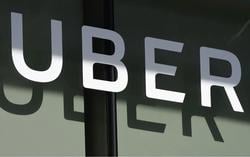
Uber shelves autonomous truck program to focus on driver-less cars
Uber Technologies Inc. said on Monday that it is closing its autonomous truck unit in order to focus the company’s efforts on its self-driving car program, ending a two-year initiative that began in August 2016 when Uber acquired self-driving truck firm Otto for a reported $680 million.
In a statement, the San Francisco-based ride-hailing company said that it decided there was no near-term need to invest time and resources in developing self-driving trucks and that its Uber Freight brokerage operation, which is unaffected by the news, can stay competitive without the future support of autonomous trucks.
The statement did not mention any specific problems in making the technology commercially viable. It has been accepted that autonomous cars would be allowed on American roads much sooner than commercial vehicles because of increased safety concerns surrounding a truck’s immense size and weight. Many observers believed that lawmakers and regulators would never allow the operation of fully autonomous trucks, and that the most realistic scenario was an autonomous operation with a human driver accompanying the vehicle.
In Otto, Uber acquired the hardware and software needed to convert commercial motor vehicles to an autonomous operation. However, the company never publicly articulated a long-term vision for the unit. There was speculation that the trucks would eventually be utilized to move loads tendered by the brokerage unit. Uber would not comment on the speculation, however.
In March, an autonomous Uber truck hauled a load about 344 miles between two points in Arizona before the load was transferred near the California border to a traditional driver for the final leg to southern California. The vehicle was part of the fleet owned by Otto.
An Uber spokeswoman said the company will re-assign employees of the self-driving unit to comparable positions within its self-driving technology operations. The spokeswoman said the company may return to the autonomous truck segment at some point.
Steve Mitgang, CEO of SmartDrive, a road safety consultancy, said Uber’s withdrawal is a setback but not a deathknell for progress in autonomous truck technology. “Uber was obviously a significant player in this space, but there are a number of other very sizable and reputable players committing immense resources to make driverless trucks a reality,” Mitgang said in an e-mail. The absence of one player “will not likely have a material impact” on the future of autonomous truck development, he said.
The Uber brokerage unit, which launched in May 2017, now operates nationwide, the spokeswoman said. Load volume is doubling every quarter, she added.
However, an industry source said the unit is generating only 3 percent gross margins on annual revenue of about $500 million, an unsustainable ratio. The source, who works for a logistics technology company, said that more than a dozen Uber Freight employees, including executives, have applied for jobs there in the past two weeks.









